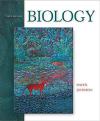1
A) ferns do not require swimming sperm B) the moss sporophyte grows taller than the gametophyte C) the fern tree is a sporophyte, and the gametophyte grows low on the ground while the moss gametophyte grows relatively tall D) the fern spores are catapulted away from the sporophyte 2
A) haplodiplontic B) diplontic C) haplontic D) triplontic 3
A) are entirely independent of the gametophyte B) provide all of the nutrition for the gametophyte C) are entirely dependent upon the gametophyte D) provide part of the nutrition for the gametophyte 4
A) as pollen grain B) the germinated pollen grain containing two sperm C) a tree bearing pollen D) the pollen producing cone 5
A) the archegonium and its egg cell B) the ovule inside the ovary C) the carpel after pollination D) an embryo sac with eight nuclei and seven cells 6
A) Anthophyta B) Ginkophyta C) Cycadophyta D) Lycophyta E) Gnetophyta 7
A) Cycadophyta B) Gnetophyta C) Ginkophyta D) Lycophyta E) Psilophyta 8
A) phylum B) class C) order D) family E) division 9
A) anther B) filament C) carpel D) stamen E) sepal 10
A) masses B) liverworts C) gnetophytes D) hornworts E) bryophytes 11
A) setae B) opercula C) stomata D) hornworts E) styles 12
A) angiosperms B) cycads C) gymnosperms D) ginkos E) ferns 13
A) sporophyte, mitosis, spores, gametophyte B) spores, meiosis, gametophyte, mitosis C) gametophyte, meiosis, gametes, zygote D) zygote, sporophyte, meiosis, spores E) gametes, zygote, mitosis, spores 14
A) integument B) ovary C) carpel D) archegonium E) ovule 15
A) Gnetophyta B) Anthocerotophyta C) Psilophyta D) Sphenophyta E) Cycadophyta 16
A) style B) archegonium C) ovary D) pollen tube E) carpel 17
A) Cycadophyta B) Psilophyta C) Gnetophyta D) Hepaticophyta E) Spenophyta 18
A) calyx B) petal C) corolla D) stamen E) sepal 19
A) carotenoids B) chlorophyll c C) chlorophyll a D) chlorophyll b E) cellulose cell wall 20
A) mosses B) liverworts C) hornworts D) conifers E) angiosperms 21
A) rhizoids B) micorrhizae C) rhizomes D) roots E) root hairs 22
A) synergid cells B) egg cell C) antipodal cells D) primary endosperm nucleus E) polar nuclei 23
A) Cycadophyta B) Ginkophyta C) Gnetophyta D) Coniferophyta E) Anthophyta 24
A) Coniferophyta B) Psilophyta C) Anthophyta D) Sphenophyta E) Cycadophyta 25
A) mycorrhizae B) fronds C) rhizomes D) setae E) rhizoids 26
A) cells of a gametophyte B) zygote C) root cells of a flowering plant D) cells of a sporophyte E) somatic cells 27
A) True B) False 28
A) airborne pollen B) vascular tissue C) seeds D) diploidy E) flowers 29
A) The sporophyte is the dominate, conspicuous phase. B) Both produce triploid endosperm tissue to feed the developing embryo. C) The sporophyte is well adapted to conditions on dry land. D) The female gametophytes are attached to and protected by the sporophyte. E) Both produce pollen and seeds. 30
A) develop a way to absorb minerals from the soil B) find a means of conserving water C) develop a way to reproduce on land D) all of the above E) none of the above 31
A) the cuticle B) the stoma C) mycorrhizae D) root hairs E) all of the above 32
A) water to move from the roots to the leaves B) carbohydrates to move from the leaves to the roots C) a rigid structure that enabled plants to grow taller D) both a and b E) a, b, and c 33
A) Hepaticophyta B) Anthocerophyta C) Bryophyta D) Pterophyta E) Lycophyta 34
not a characteristic of ferns?A) Ferns are seedless. B) Ferns are small plants. C) Most ferns grow in the tropics. D) Ferns need water for reproduction. E) All of the above are correct. 35
A) making dispersal of offspring easier B) allowing survival during adverse conditions C) allowing germination during favorable conditions D) providing nourishment following germination E) all of the above 36
not a gymnosperm?A) coconut B) ginkgo C) cycads D) gnetophytes E) cypress 37
A) True B) False 38
A) True B) False 39
A) True B) False 40
A) embryo with one cotyledon B) leaves with parallel veins C) lateral meristems rarely occur D) flower parts in 3's or multiples of 3's E) all of the above are characetrics of dicots



 2002 McGraw-Hill Higher Education
2002 McGraw-Hill Higher Education